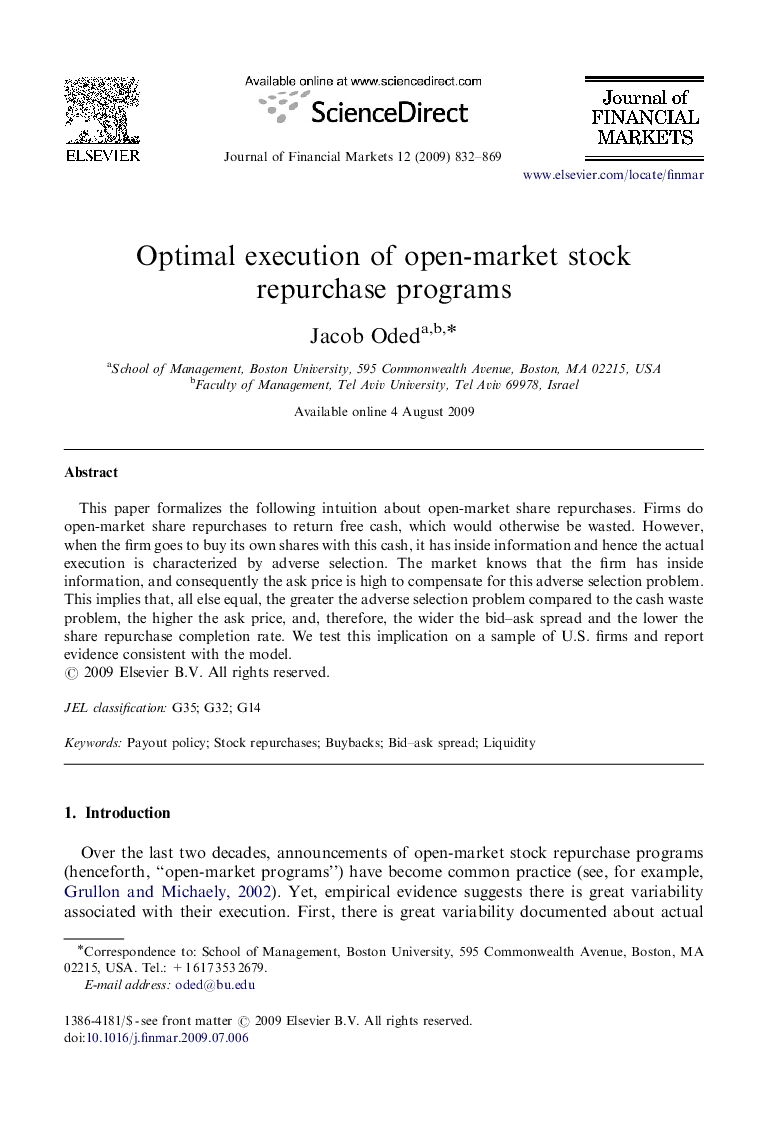| Article ID | Journal | Published Year | Pages | File Type |
|---|---|---|---|---|
| 960901 | Journal of Financial Markets | 2009 | 38 Pages |
Abstract
This paper formalizes the following intuition about open-market share repurchases. Firms do open-market share repurchases to return free cash, which would otherwise be wasted. However, when the firm goes to buy its own shares with this cash, it has inside information and hence the actual execution is characterized by adverse selection. The market knows that the firm has inside information, and consequently the ask price is high to compensate for this adverse selection problem. This implies that, all else equal, the greater the adverse selection problem compared to the cash waste problem, the higher the ask price, and, therefore, the wider the bid-ask spread and the lower the share repurchase completion rate. We test this implication on a sample of U.S. firms and report evidence consistent with the model.
Related Topics
Social Sciences and Humanities
Economics, Econometrics and Finance
Economics and Econometrics
Authors
Jacob Oded,
